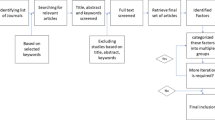Abstract
We propose a so-called trust matrix model to build trust for conducting first trade transactions in electronic commerce; i.e. transactions in an electronic commerce environment between two parties that have never conducted trade transactions between them before. The trust matrix model is based on the idea that for business-to-business electronic commerce a balance has to be found between anonymous procedural trust, i.e. procedural solutions for trust building, and personal trust based on positive past experiences within an existing business relation. Procedural trust building solutions are important for first trade situations, because of the lack of experience in these situations. The procedural trust solutions are related to the notion of institution-based trust, because the trust in the procedural solutions depends on the trust one has in the institutions that issued or enforces the procedure. The trust matrix model can be used as a tool to analyze and develop trust-building services to help organizations conduct first-trade electronic commerce transactions.
Access this chapter
Tax calculation will be finalised at checkout
Purchases are for personal use only
Preview
Unable to display preview. Download preview PDF.
Similar content being viewed by others
References
Bons, R.W.H. (1997). Designing Trustworthy Trade Procedures for Open Electronic Commerce, Ph.D. Dissertation, EURIDIS and Department of Business Administration, Erasmus University, Rotterdam.
Bons, R.W.H, Lee, R.M and Wagenaar, R.W. (1999). Computer-aided Auditing of Inter-organizational Trade Procedures, International Journal of Intelligent Systems in Accounting, Finance & Management, Vol. 8, pp. 25–44.
Castelfranchi, C. and Tan, Y.H. (2001). The Role of Trust and Deception in Virtual Societies, Proceedings of the 34th Hawaii International Conference on System Sciences (HICSS’01), IEEE Computer Society Press, Los Alamitos, CA.
Castelfranchi, C. and Falcone, R. (1998). Principles of Trust for Multi-Agent Systems: Cognitive Anatomy, Social Importance, and Quantification, Proceedings of the International Conferences on MAS — ICMAS’98, Paris, 2–8 July, AAAI-MIT Press.
Das, T.K. and Teng, B. S. (1998). Between Trust and Control: Developing Confidence in Partner Cooperation in Alliances, Academy of Management Review, Vol. 23, No. 3, pp. 491–512.
Doney, P.M. and J.P. Cannon (1997), An Examination of the Nature of Trust in Buyer-Seller Relationships, Journal of Marketing, 61(1), 35–51.
Dwyer, F.R, P.J. Schurr, and S Oh (1987), Developing Buyer-Seller Relationships, Journal of Marketing, 52(1), 21–34.
Hosmer, L.T. (1995). Trust: The Connection Link between Organizational Theory and Philosophical Ethics, Academy of Management Review, Vol. 20, No. 3, pp. 213–237.
Jap, S.D. and S. Ganesan (1999), Control Mechanisms and the Relationship Life-Cycle, Journal of Marketing Research, 37, 227–45.
Lee, R.M. and Bons, R.W.H. (1996). Soft-Coded Trade Procedures for Open-EDI, International Journal of Electronic Commerce, Fall, Vol. 1, No. 1, pp. 27–49.
Lewicki, R.J. and Bunker, B.B. (1995). Trust in Relationships: A Model of Development and Decline, Conflict, Cooperation and Justice, Bunker, B.B. and Rubin, J.Z. (eds.), Jossey-Bass, San Francisco.
Keen, P., Ballance, C., Chan, S. and Schrump, S. (2000). Electronic Commerce Relationships: Trust by Design, Prentice Hall PTR, Upper Saddle River, New Jersey.
Nooteboom, B. (1999). Trust as a Governance Device, Inter-Firm Alliances: Analysis & Design, Routledge, London.
Nooteboom, B., Klos, T. and Jorna, R. (2001). Adaptive Trust and Co-Operation: An Agent-Based Simulation Approach, Fraud, Deception, and Trust in Agent Societies, Falcone, R., Singh, M. and Tan, Y.H. (eds.), Lecture Notes in Computer Science (LNCS/LNAI), Springer Verlag
Tan, Y.H. and Thoen, W. (2000). A generic model of trust in electronic commerce, International Journal of Electronic Commerce, Vol. 5(2), 61–74.
Tan, Y.H. and Thoen, W. (2002). A formal analysis of a generic model of trust for electronic commerce, Journal of Decision Support Systems, Vol 33, 233–246.
Author information
Authors and Affiliations
Editor information
Editors and Affiliations
Rights and permissions
Copyright information
© 2003 Springer-Verlag Berlin Heidelberg
About this paper
Cite this paper
Tan, YH. (2003). A Trust Matrix Model for Electronic Commerce. In: Nixon, P., Terzis, S. (eds) Trust Management. iTrust 2003. Lecture Notes in Computer Science, vol 2692. Springer, Berlin, Heidelberg. https://doi.org/10.1007/3-540-44875-6_3
Download citation
DOI: https://doi.org/10.1007/3-540-44875-6_3
Published:
Publisher Name: Springer, Berlin, Heidelberg
Print ISBN: 978-3-540-40224-4
Online ISBN: 978-3-540-44875-4
eBook Packages: Springer Book Archive




